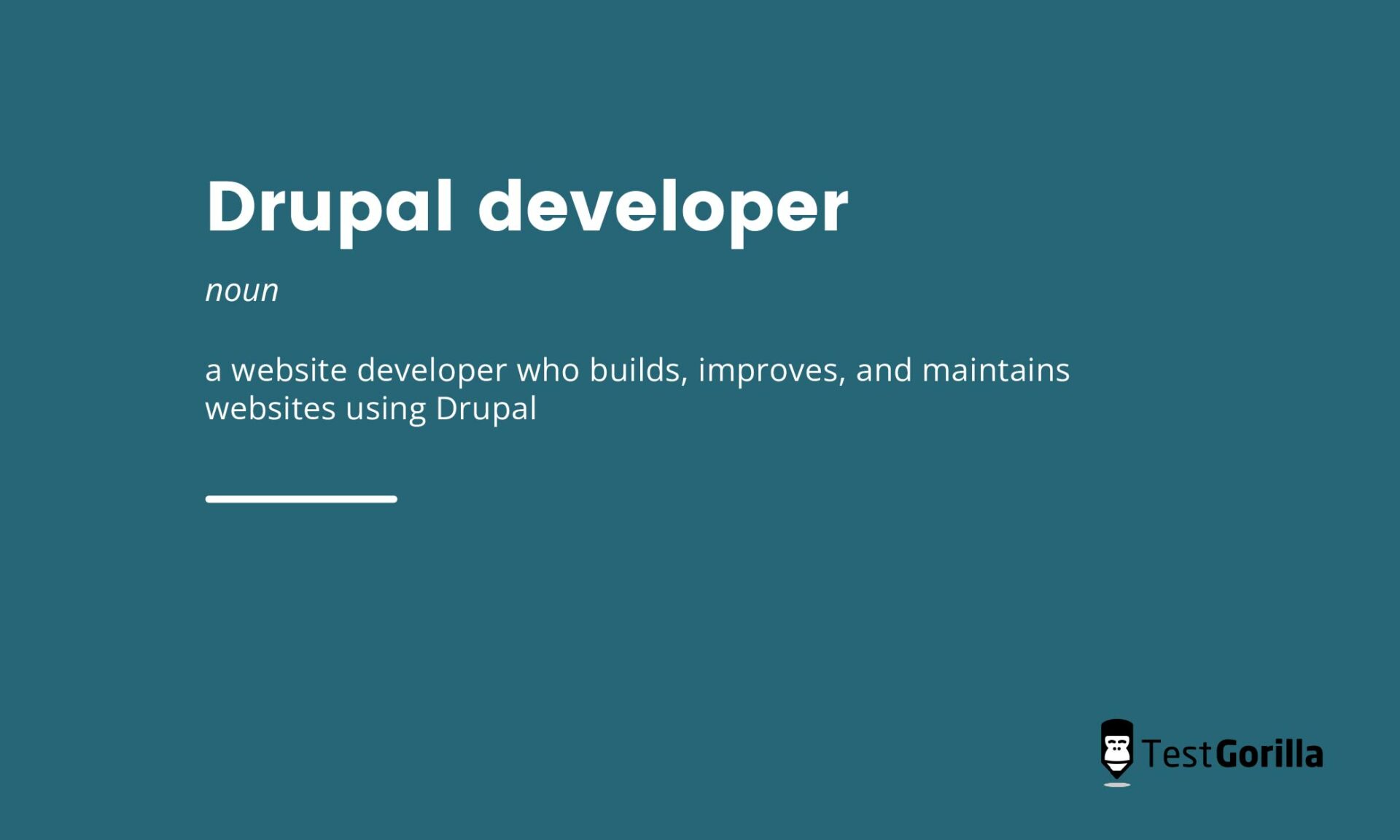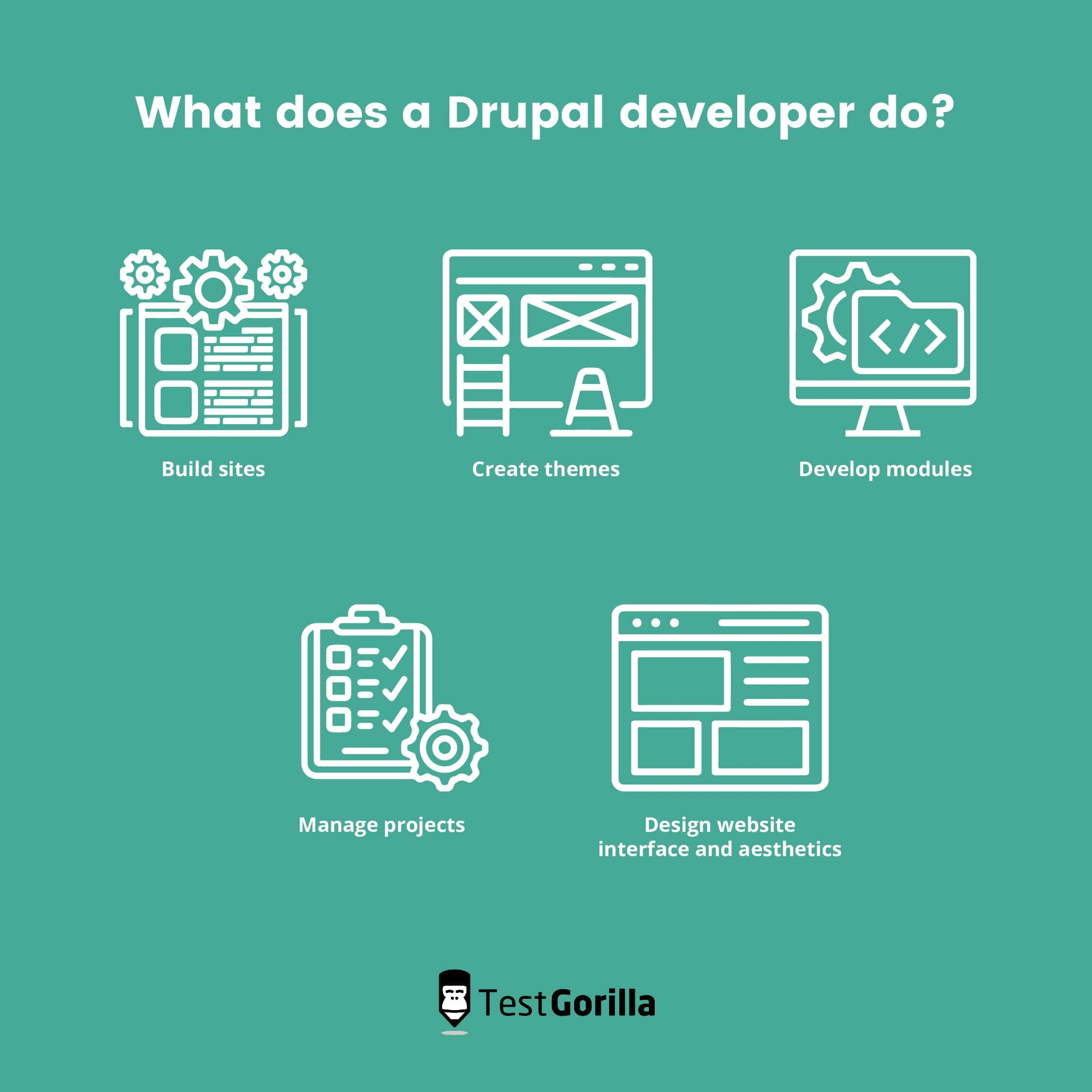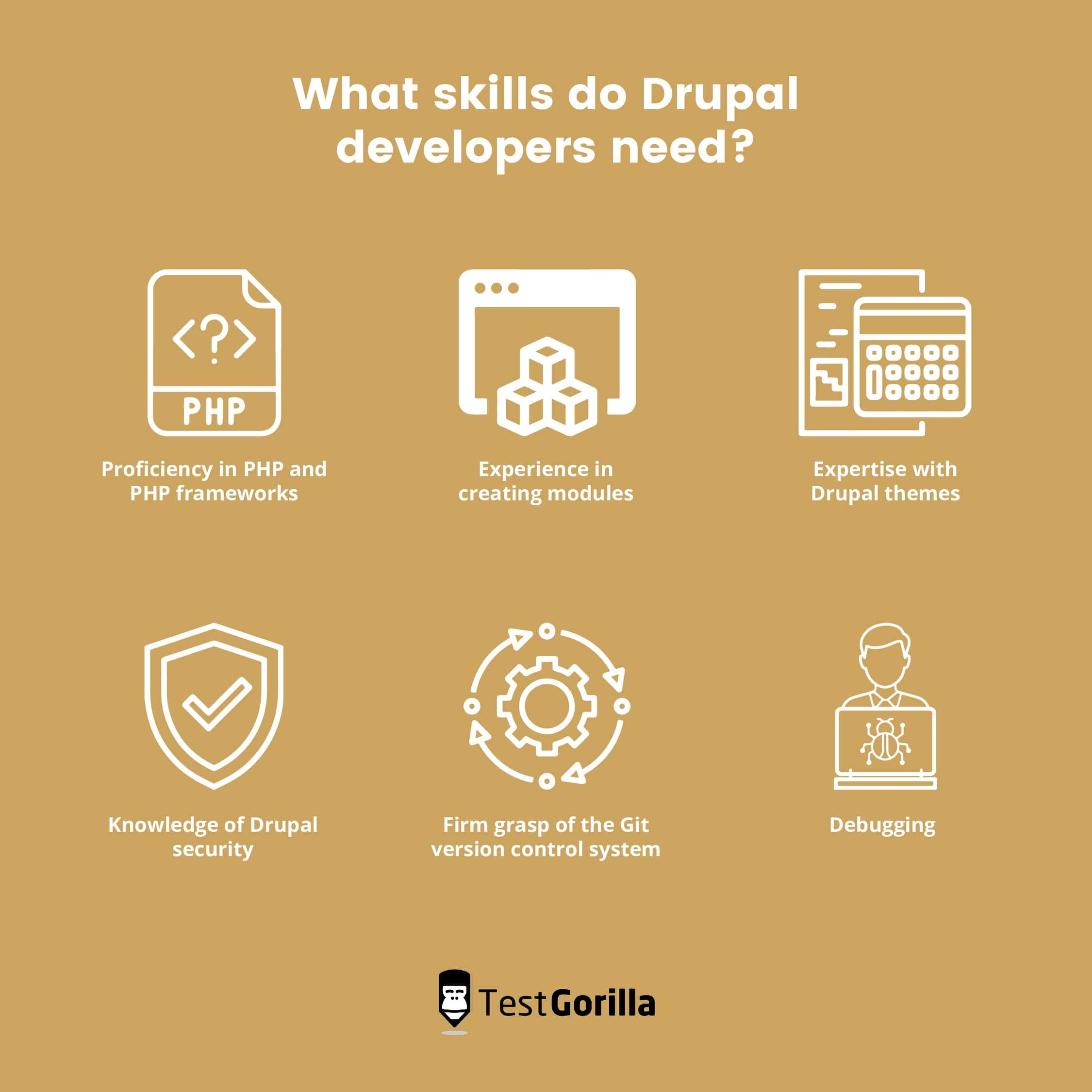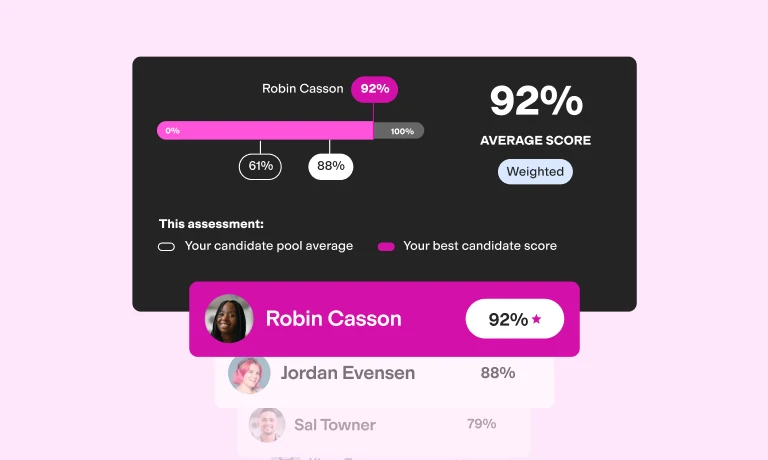What does a Drupal developer do, and why does your business need one?
Table of contents
The way you build your business website will determine how well it will respond to change as your organization grows. That’s why you should consider using a platform that enables you to improve your marketing efforts.
Drupal is a leading content management system (CMS) that improves the quality of websites, making it a valuable addition to your content strategy. Its flexibility, scalability, and resourcefulness have made it one of the top three CMSs globally.
Consequently, Drupal developers are in high demand. But hiring one is not a walk in the park – it requires an effective recruitment strategy that includes a skills test like TestGorilla’s Drupal test.
With the right hiring methods, you can ensure you accurately evaluate applicants’ technical skills in building and managing websites.
In this article, we’ll explain the role of Drupal developers and the benefits you’ll enjoy by having one on your team.
What is a Drupal developer?
A Drupal developer is a website developer who builds, improves, and maintains websites using Drupal. They focus on creating features with server-side languages like PHP to bolster a website’s functionality and performance.
Drupal is a publicly accessible CMS that helps you build websites that serve your content management strategy. It has a large community of more than one million technical experts, including developers.
What does a Drupal developer do?
Drupal web developers are masters at building website assets and revamping websites’ content structure to meet specific needs. Here are some of the roles Drupal developers can play in your establishment:
1. Build sites
Drupal developers mainly create websites in PHP. These sites can determine how customers interact with your company and the rate at which your business grows.
With support from other technical experts like graphic designers and content writers, they can create functional websites that run optimally.
2. Create themes
Drupal theme developers are front-end developers and are usually experts in HTML and CSS. They can transform a design and make it into a working theme. Some Drupal developers have a background in graphics design, enhancing their creativity.
3. Develop modules
Excellent Drupal developers are capable of creating modules or Drupal add-ons that are accessible to the entire Drupal community. Although you’ll often find them using an already existing module, they sometimes create their own with improved features and functionality.
4. Manage projects
Sometimes, Drupal developers act as project managers and ensure that your projects meet specific requirements by predetermined deadlines. Drupal developers can also serve as intermediaries between the client and your team to ensure digital projects run smoothly.
5. Design website interface and aesthetics
Front-end Drupal developers are most concerned with the visual statement your website conveys to customers. Their JavaScript skills, knowledge of web development languages, and expertise in UI design enable them to build beautiful and engaging websites that are visually appealing to your customers.
The best insights on HR and recruitment, delivered to your inbox.
Biweekly updates. No spam. Unsubscribe any time.
What skills do Drupal developers need?
Most Drupal developers have a variety of technical skills that contribute to their success. But you should look out for those who have the specific skills needed to improve your website’s performance and functionality.
The following are the basic skills all Drupal developers should have:
1. Proficiency in PHP and PHP frameworks
Since Drupal is written in PHP, developers should be adept at programming using the PHP language. They should also have knowledge of PHP frameworks and how to apply them to harness Drupal’s full potential.
2. Experience in creating modules
Modules are sets of PHP, JavaScript, and CSS files that improve site features and add functionality. Your Drupal developer needs to know how to develop modules because meeting the clients’ requests might require them to create a module from scratch rather than editing an existing one.
3. Expertise with Drupal themes
Although modules give your Drupal website functionality, the design and theme of your website will determine whether it appeals to your customers. Hence, your Drupal developer needs a solid understanding of design because your clients might require unique themes and designs.
4. Knowledge of Drupal security
The Drupal platform offers reliable security. However, no system is immune from security breaches. Hence, your developer must be familiar with Drupal’s security policies and strategies to be able to secure your website’s confidential data and configuration files.
5. Firm grasp of the Git version control system
Git version control is a practice that enables you to track changes to your code so that you can revert to previous versions if necessary. Drupal coders with this skill are more efficient because the Git version control system makes it easier for them to manage and access files.
6. Debugging
Since errors will inevitably appear in applications, debugging code while writing it is a vital skill for all developers. Your Drupal programmer must have a keen eye and be able to debug code at your website’s development and deployment stages.
Why does your company need a Drupal developer?
Although Drupal offers many resources, it can be difficult to use. That’s why you should leave the technicalities of the language to a Drupal developer who can harness the platform’s numerous benefits.
In addition, Drupal programmers speed up the development process by using the numerous resources and modules available to them through the large Drupal community. They can easily integrate modules into your website that will promote your website’s overall performance.
Further, Drupal developers with skills in related areas, like SEO, graphic design, and content management, can help you build functional websites for blogs, social networking, and even news publishing.
What do you need to know before hiring Drupal developers?
Hiring an expert developer requires you to consider several things. Understanding the following points will help you streamline the process of finding the right Drupal developer:
Your business needs: Drupal developers can perform various roles in different companies. It’s crucial to identify your company’s needs and how a Drupal coder can solve them so that you can tailor your recruitment strategy accordingly.
Your budget: Usually, Drupal developers earn around $75,910 annually. Keeping this in mind will help you create a budget and remuneration plan that works for you and the Drupal programmer you eventually hire.
Your recruitment strategy: Your hiring strategy should be stress-free and efficient so that you can easily shortlist the best candidates for the role. While developing a hiring plan, make sure to pay close attention to how you structure the interview stage.
You should also integrate prescreening tests in the hiring process to assess applicants’ technical abilities.
Where to find Drupal developers: The platform you should use to find Drupal developers depends on how long you plan to employ them. Do you need a Drupal coder for a single project, or do you want to hire a permanent full-time employee?
Freelance websites like Upwork and job boards like Indeed can be great sources of talent. Alternatively, you could simply post a Drupal developer job description on your website and run job ads on various digital platforms, including social media.
The secret to a stress-free hiring plan
Every hire is a potential gold mine for your organization. Some positions are essential to major business operations, whereas others support them in various ways to help you achieve your goals.
Regardless, you should take care to hire the right person for every role because mis-hiring can lead to significant negative consequences for your business.
By incorporating pre-employment tests like the Drupal test in your hiring plan, you lower the chances of making bad hires while increasing the likelihood of finding the best experts for the role.
You can also hire without bias and rest assured that your chosen candidate will align perfectly with your company’s values.
TestGorilla offers a test library that comprises numerous tests for roles in many industries. If you’re ready to hire the right Drupal developer, simply register with Testgorilla to create a demo account today.
You've scrolled this far
Why not try TestGorilla for free, and see what happens when you put skills first.





















